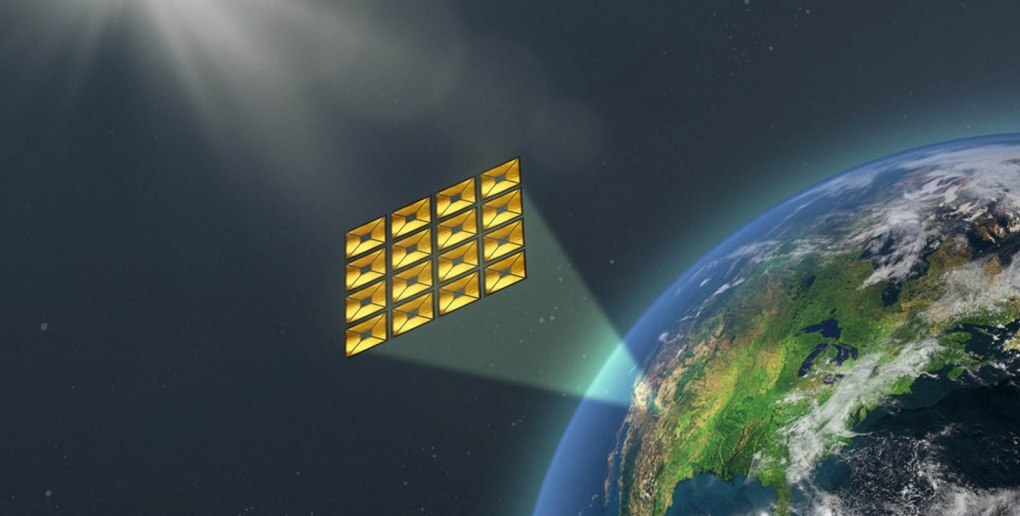5.01.2023
The prototype is being launched on a SpaceX rocket currently slated for liftoff on Jan. 3 from Cape Canaveral.

Scientists at Caltech are launching a Space Solar Power Demonstrator prototype into orbit Tuesday as part of an ambitious effort to harvest solar power in space and beam that energy back to Earth, university officials in Pasadena said. Courtesy photo
PASADENA — Scientists at Caltech are launching a Space Solar Power Demonstrator prototype into orbit Tuesday as part of an ambitious effort to harvest solar power in space and beam that energy back to Earth, university officials in Pasadena said on Monday, Jan. 2.
The prototype is being launched on a rocket from Hawthorne-based SpaceX currently slated for liftoff on Tuesday from Cape Canaveral. It being sent into space represents a major milestone in Caltech’s Space Solar Power Project, which aims to deploy a constellation of spacecraft that collect sunlight, transform it into electricity, then transmit that over long distances wherever it is needed —including to places that currently have no access to reliable power.
When fully realized, the project could make what was once considered science fiction a reality, researchers said.
“Space solar power provides a way to tap into the practically unlimited supply of solar energy in outer space, where the energy is constantly available without being subjected to the cycles of day and night, seasons and cloud cover,” according to Caltech.
Caltech’s Space Solar Power Project got its start after philanthropist Donald Bren, chairman of Irvine Company and a lifetime member of the Caltech Board of Trustees, learned about the potential for space-based solar energy manufacturing in an article in Popular Science magazine. In 2013, Bren and his wife, Brigitte, a Caltech trustee, agreed to donate the funds (set to eventually exceed $100 million) for the project through the Donald Bren Foundation.
“For many years, I’ve dreamed about how space-based solar power could solve some of humanity’s most urgent challenges,” Bren said. “I’m thrilled to be supporting Caltech’s brilliant scientists as they race to make that dream a reality.”
The rocket will take approximately 10 minutes to reach its desired altitude, with the prototype then to be deployed from it into orbit, according to Caltech. The Caltech team on Earth plans to start running their experiments within a few weeks of the launch and testing and data collection are expected to continue for several months.
“No matter what happens, this prototype is a major step forward,” said SSPP Co-Director Ali Hajimiri, who is also Caltech’s Bren professor of electrical engineering and medical engineering.
“It works here on Earth, and has passed the rigorous steps required of anything launched into space. There are still many risks, but having gone through the whole process has taught us valuable lessons. We believe the space experiments will provide us with plenty of additional useful information that will guide the project as we continue to move forward.”
Quelle: Pasadena Star-News
